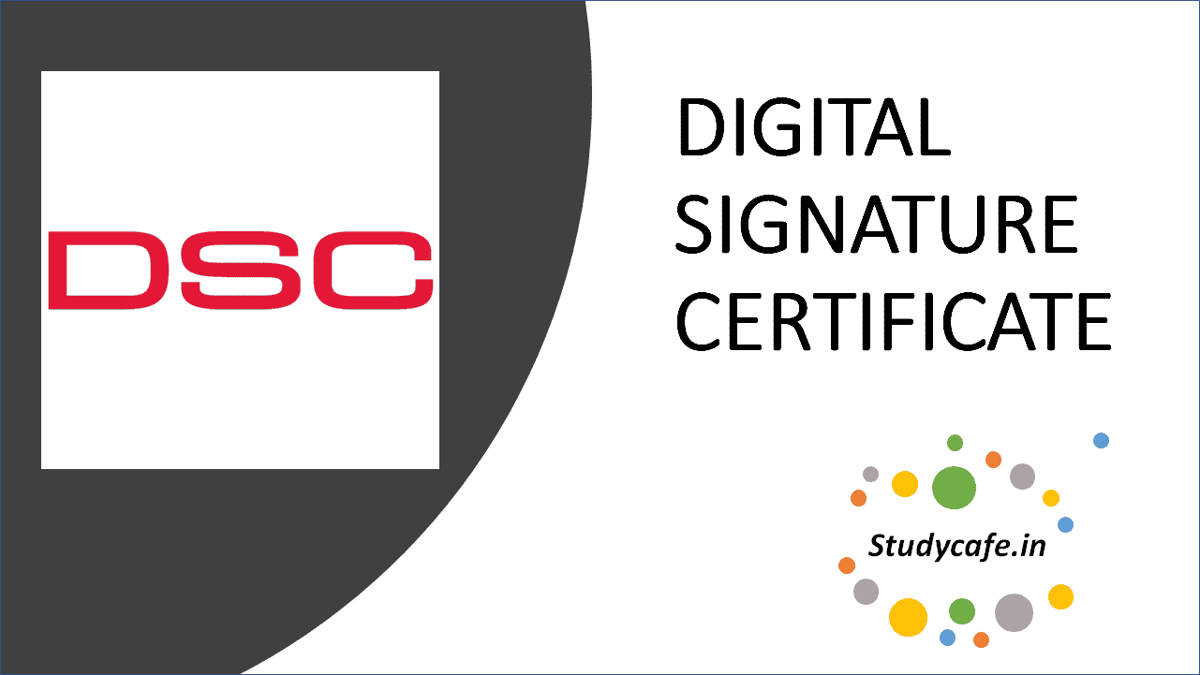What is DSC and its usages: Digital Signature Certificate
#What is DSC
- Digital Signature Certificates (DSC) are the digital equivalent (that is electronic format) of physical or paper certificates. Few Examples of physical certificates are drivers’ licenses, passports or membership cards. Certificates serve as proof of identity of an individual for a certain purpose; for example, a driver’s license identifies someone who can legally drive in a particular country. Likewise, a digital certificate can be presented electronically to prove ones identity, to access information or services on the Internet or to sign certain documents digitally.
- A digital signature is an electronic signature that can be used to sign electronic documents. Just the way physical documents are validated by a handwritten signature, electronic documents are validated by signing them through a digital signature.
- A digital signature certificate (DSC) contains information about the users name, pin code, country, email address, date of issuance of certificate and name of the certifying authority.
#What are the Benefits of a digital signature certificate
- Authenticity of documents: Digitally signed documents give confidence to the receiver to be assured of the signers authenticity. They can take action on the basis of such documents without getting worried about the documents being forged.
- Data integrity: Documents that are signed digitally cannot be altered or edited after signing, which makes the data safe and secure.
- Reduced cost and time: Instead of signing the hard copy documents physically and scanning them to send them via e-mail, you can digitally sign the PDF files and send them much more quickly. This saves time as well as the cost of printing and scanning the documents.
#Where can I use Digital Signature Certificates
You can use Digital Signature Certificates for the following:
- For secure email and web-based transactions, or to identify other participants of web-based transactions.
- To prove ownership of a domain name and establish SSL/ TLS encrypted secured sessions between your website and the user for web based transactions.
- As a developer, for proving authorship of a code and retaining integrity of the distributed software programs.
- For signing web forms, e-tendering documents, filing income tax returns, to access membership-based websites automatically without entering a user name and password etc.
#Fulfilling statutory compliances:
- Individuals and entities who are required to get their accounts audited have to file their income tax return compulsorily using a digital signature. Furthermore, the Ministry of Corporate Affairs has made it mandatory for companies to file all reports, applications, and forms using a digital signature only.
- Under GST also, a company can get registered only by verifying the GST application through a digital signature. The use of a digital signature is necessary even for filing all applications, amendments and other related forms.
#Who issues DSC
A licensed certifying authority (CA) issues the digital signature certificate. They have been given the power to issue, cancel and renew DSC as per section 24 of the Information Technology Act, 2002.
#Classes of DSC:
There are three classes of DSC, and each is differentiated as per the level of security:
- Class I DSCs These DSCs cater to the purpose where the risk is minimal. The signature is stored in a software.
- Class II DSCs These DSCs are used to sign documents where the risk is moderate. The signature is installed on a hardware cryptographic device.
- Class III DSCs These DSCs are used where the risk of data compromise is at the extreme level. For obtaining this DSC, the person has to appear before the certifying authority. In this case, also, the signature is installed in a hardware cryptographic device.
#Documents required for issuing DSC:
- Identity Proof Self-attested PAN card
- Address Proof Self-attested Aadhar Card
- Other – 1photograph, email id, contact no.
#Cost/Price of obtaining a DSC:
The cost of obtaining a digital signature certificate may vary as there are many entities issuing DSCs and their charges may differ.
#How much time do CAs take to issue a DSC
The time generally taken by CAs to issue a DSC may vary from three to seven working days. Also on fulfilment of terms and conditions DSC is issued by some CAs on same day based on eKYC for Aadhaar Holders.
#Points to be Remember:
- Digitally signed documents are acceptable in legal courts as an evidence or proof.
- A person can have different DSCs one for official purpose and the other DSC for personal purpose.
- Digital signatures are issued for 1 or 2 years. After their validity has expired, they need to be issued again.
To Get DSC Click here and mentioned your name and phone number our executive will call you.
Tags:What is DSC and its usages: Digital Signature Certificate, DSC,Digital Signature Certificate, Apply for DSC, How t0 apply for DSC, DSC form, DSC
StudyCafe Membership
Join StudyCafe Membership. For More details about Membership Click Join Membership Button
Join MembershipIn case of any Doubt regarding Membership you can mail us at [email protected]
Join Studycafe's WhatsApp Group or Telegram Channel for Latest Updates on Government Job, Sarkari Naukri, Private Jobs, Income Tax, GST, Companies Act, Judgements and CA, CS, ICWA, and MUCH MORE!"
